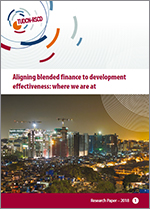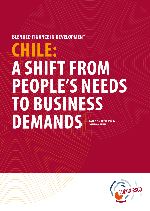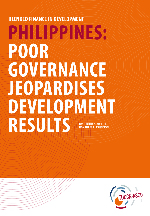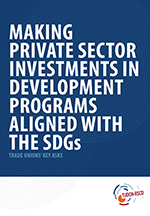During the two-day long meeting, the attendees were briefed on ongoing key development processes and revised their strategies to ensure that Asia-Pacific trade unions engaged in development will be present and heard along this year. Shoya Yoshida, Secretary General of ITUC-AP, Pong-Sul Ahn (ILO/ACTRAV), Riccardo Mesiano (UN ESCAP) and three representatives of the Asian Development Bank - Smita L. Nakhooda, Lesley Lahm and Haidy Seang Ear-Dupuy - participated in the meeting.
The meeting started with a debriefing session about Asia Pacific governments’ progress on the implementation of the 2030 Agenda and the SDGs at national level. Participants also talked about what possibilities Asia-Pacific governments are offering to trade unions to engage in national processes linked to the implementation of the 2030 Agenda. The discussion moved on to the ongoing UN reform process. Pong-Sul Ahn, from ILO/ACTRAV, presented some updates on this process and explained that the ILO plays a role in it both at the global, regional and national level.
Thereafter, the session focussed on the upcoming Asia-Pacific Forum on Sustainable Developmentthat will take place on 24-26 March in Bangkok. From a trade union’s point of view, this forum will be very important because it will offer a space to provide data that will feed the process of National Voluntary Reviews (VNRs). It will also be a place to learn about the most recent information on progress on decent work, social protection, just transition and labour rights standards in the Asia-Pacific region. The talks about the VNRs led to the next discussion, which revolved around the production of the trade union SDG country profiles. This year, ten countries from the region will present their Voluntary National Review at the High-Level Political Forum in July. Indonesia and the Philippines will repeat the experience, while Cambodia, Fiji, Mongolia, Nauru, New Zealand, Palau, Timor-Leste, Tonga and Vanuatu will do it for the first time.
The involvement and role of the private sector in development cooperation was the next discussion point on the agenda. The representatives of the Asian Development Bank talked about the bank’s approach to blended finance and its rationale behind using this mechanism. After that, Paola Simonetti (ITUC/TUDCN) took the floor to present the advocacy brief “Making Private Sector Investments in Development Programs Align with the SDG”, which lays out the position of trade unions on this matter. Trade unions insist that private sector’s engagement has to be steered and framed by responsible business conduct, the principles of development effectiveness and the objectives of the 2030 Agenda. In the light of this, trade unions have developed a list of selection criteria that, if applied, would help donors to select private sector partners who are truly committed to achieving the SDGs.
 Presenting the paper "Making Private Sector Investments in Development Programs Align with the SDG"
Presenting the paper "Making Private Sector Investments in Development Programs Align with the SDG"
![]() For further information, consult the report of the meeting.
For further information, consult the report of the meeting.
Related resources
ITUC/TUDCN has produced an advocacy package composed of a series of publications that explain the position and key asks of trade unions to governments and the national development financial institutions regarding the engagement of the private sector in development cooperation.
![]() Research paper: Aligning blended finance to development effectiveness: where we are at
Research paper: Aligning blended finance to development effectiveness: where we are at
![]() Country brief: Blended finance in development: Chile
Country brief: Blended finance in development: Chile
![]() Country brief: Blended finance in development: the Philippines
Country brief: Blended finance in development: the Philippines
![]() Trade unions’ key asks: Aligning private sector investments in development with the SDGs
Trade unions’ key asks: Aligning private sector investments in development with the SDGs
 |
 |
 |
 |
![]() This event has received the support of the European Union
This event has received the support of the European Union


